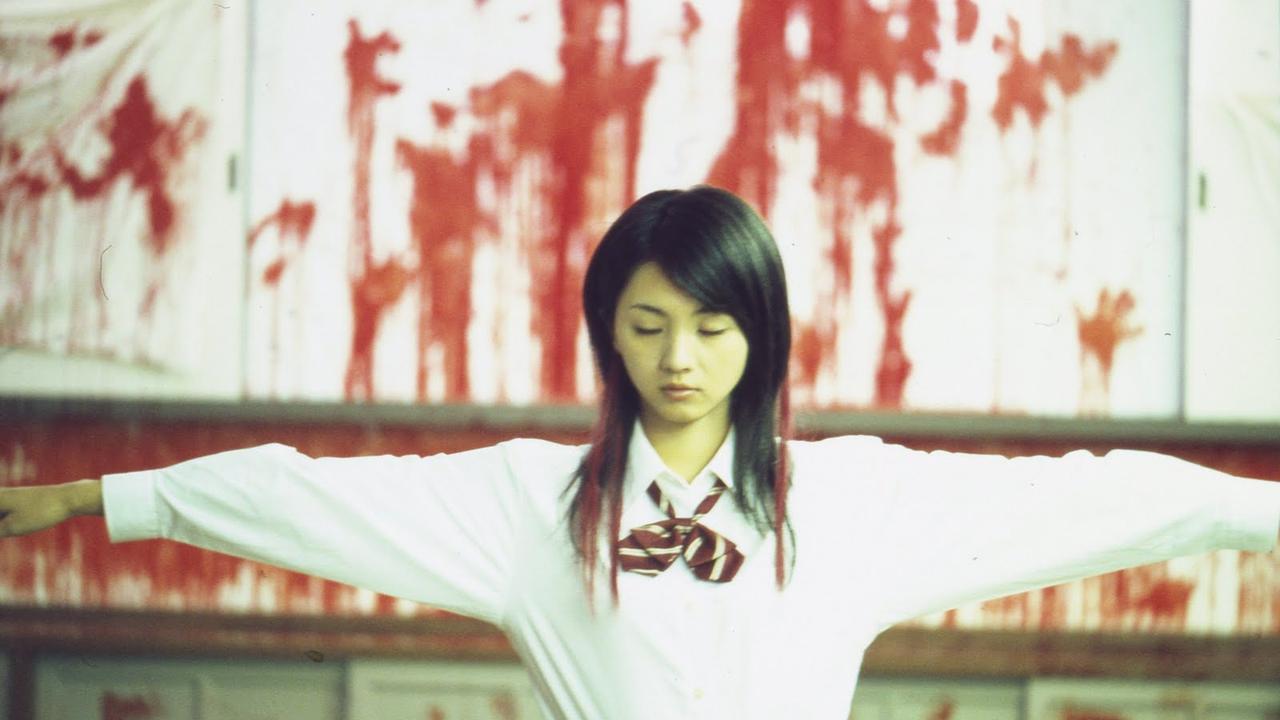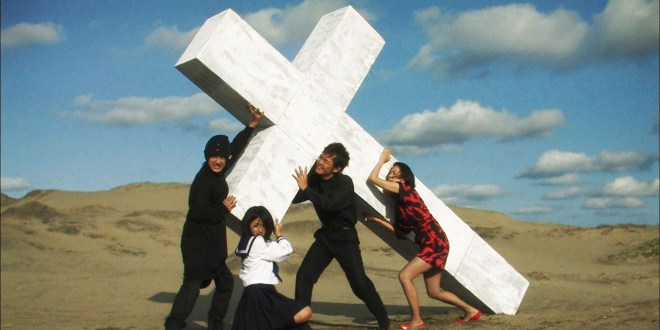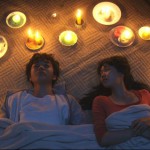By David Pountain
Dir: Sion Sono
Clocking in at just under four hours, Sion Sono’s triumphant Love Exposure is a big fat graphic novel of a movie that wears its adolescence on its sleeve. Mixing operatic violence and gloriously goofy humour with a little social commentary, the film propels us through an invigorating, often nightmarish, hormone-driven fantasy that delves into the most prominent, confusing and frustrating subjects of the teenage mind-set. Love, lust, guilt, loneliness and humiliation abound in a story that finds a way to fit family drama and teen romance next to up-skirt photography and shady religious cult activity. You’d think that Sono was under the impression that he’d never be allowed to make another film with the amount he decides to cram into this one.
We start the film with a boy named Yu promising his mother that he will find and marry a woman just like the Virgin Mary. Jumping ahead to Yu’s teenage years, the internally muddled young man’s mother is dead, his father has become a sin-obsessed priest and the search for his own Mary sets him on a journey that defies concise summation. I can, however, tell you that he eventually crosses paths with a girl named Yoko and immediately decides that she’s the one he’s been looking for after he catches a glimpse of her underwear. Yoko, on the other hand, is a spirited misandrist who wants nothing to do with Yu or his comically inadvertent erections. Awkwardness ensues when Yoko’s foster mother gets together with Yu’s father and the four of them start living together.
Completing the film’s holy trinity of teenagers is the devious Koike. While Yu and Yoko are both shown to have had problematic upbringings that have shaped their views on love, sex and relationships, there’s no doubt that Koike is the most screwed up of the three. Whereas the former two’s character arcs can often feel like cartoonish exaggerations of any confused teenager’s voyage of self-discovery, Koike is a fundamentally different sort of human being. It’s as though, after so many years of living under her monstrous father, something inside her just broke, and now she spends her days as an obsessively scheming member of the mysterious and corrupt Zero Church. As Koike, Sakura Ando gives the most intriguing performance in the film, often appearing dopily removed despite the precision of her manipulation as she cleverly eases her way into Yu and Yoko’s surrogate family.
Sono captures the action with an exhilaratingly pop-minded impulsiveness and peppers the film with an array of hilarious minor characters, from the pseudo-enlightened old man who teaches Yu all he needs to know about perversity, to the childishly gleeful psycho that Yu talks out of planting a homemade bomb in a crowded place. There is so much going on in this film that it may take a second viewing to appreciate just how well it all fits together – not that anyone with affection for the manga-inspired sector of East Asian cinema will need such an excuse to give Love Exposure another go-around. The immense running time isn’t demanding, it’s generous. This film is a gift.
Watch Love Exposure on FilmDoo.com (UK & Ireland only)






